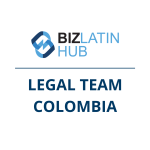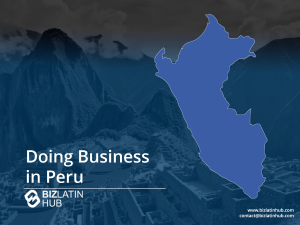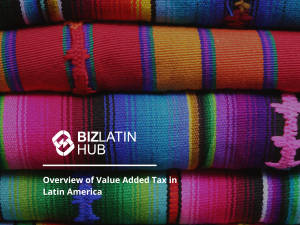On 2 May 2019, the Colombian Tax Authority (DIAN) and the Colombian Immigration Office (Migración Colombia) published a press release informing that they had signed an inter-institutional cooperation agreement.
The main purpose of this agreement is to allow the agencies to provide information between themselves in order to prevent tax evasion, money laundering and increase immigration control.
We explore what this agreement means for businesses operating in the country, and those considering their expansion options.
Tax Cooperation – Streamlined tax and immigration information sharing

Public entities enter into cooperation agreements with the aim of joining efforts to carry out their functions, and reach common objectives. Having agencies share information means less bureaucratic requirements on their customers to ensure information is communicated correctly across those involved in a cooperation agreement.
In this case, the interest of the two entities converge in immigration and customs control. These Colombian agencies – DIAN and Migración Colombia – will start sharing information about foreign migrants living and working in the country. This will allow the agencies to communicate with each other on who in their system may potentially be evading taxes, money laundering, or posing another kind of threat to the country’s fiscal security.
Ensuring greater tax compliance and monitoring of tax risks enables these agencies to make more informed decisions on applications for tax residence accreditation or tax certifications.
What does this mean for foreigners in Colombia?
The Colombian government is working towards greater harmony, cooperation and therefore control in regard to illegal migration and compliance of tax obligations by people legally established in Colombia with temporary or permanent visas.
In its most basic sense, this agreement means that individuals’ personal tax and immigration information may more easily be communicated between these two agencies.

The agreement has not been published, therefore its content and scope are not fully clear yet. There’s a chance that certain tax and/or immigration processes may change as a result, with the intent to reduce bureaucratic steps in the handling of information between DIAN and Migración Colombia.
The Colombian authorities stated that the handling of the information will be done with absolute confidentiality and will be used exclusively to assess individuals’ compliance with their legal obligations.
Residency in Colombia
There several avenues for foreigners looking to live and work in Colombia to obtain visas, either through employment or their own commercial investment. These include 3 main options:
- Working visa
- Property owner/investor visa
- Business owner visa.
Working visa
For the working visa, applicants will need to provide their current passport and show proof of a valid, signed contract between themselves and a Colombian employer. The contract must be signed by the employer’s legal representative.
The company must already be registered before the Sistema de Registro de Extranjeros en Colombia (English: Registration System for Foreigners in Colombia, known locally as SIRE). This registration authorizes the company to hire foreigners.
Property owner/investor visa
Foreigners can obtain a visa through owning or investing in property in Colombia. Under this visa, there are 2 options for applicants:
- Migrant property owner visa (M)
- Residential property owner visa (R).
The application requirements differ slightly with these variations. Notably, the Migrant visa requires an investment amount 350 times the current Colombian minimum wage, and does not allow its holder to work.
The Residential visa requires an investment amount 650 times the current minimum wage, and it does permit the holder to work.
You must register your foreign capital for this investment through the Central Bank of Colombia before you can apply for either visa.
Business owner visa
One key drawcard for businesses considering their expansion options in Latin America is Colombia’s law allowing 100% foreign business ownership.
To obtain the business owner visa, you’ll need to incorporate a company and register your investment into that company through the Central Bank.
Note that the incorporation process requires you to appoint a legal representative who is either a Colombian national, or who holds a valid residency visa. You’ll also need to register a fiscal address and file tax returns (monthly and annual) with DIAN.
Understand your tax requirements
As a business and as an individual, it’s important to note your tax obligations in Colombia, and which taxes apply to your activities.
For example, individuals staying in the country for over 183 days become subject to income tax. The Colombian government has also implemented a plan to gradually reduce the income tax rate from 2020-22, by 1% each year.
Various taxes apply to company activity, including industry and trade tax, and value-added tax.
Stay on top of your tax and visa requirements by engaging with local legal and visa processing experts. With their help, you can get support shouldering the burden of monitoring your compliance to local law, and reduce the risk of penalties as a result of not meeting your obligations.
Contact us for help
It’s important to get local advice and support for your Colombian business. At Biz Latin Hub, our experienced legal, accounting, and visa processing experts offer top-quality guidance to ensure your commercial success.
Reach out to us to learn more about our suite of market entry and back-office services, and how we can personalize them to suit your business’ needs.
Contact us today to find out more about how we can support you.
Learn more about our team and expert authors.





